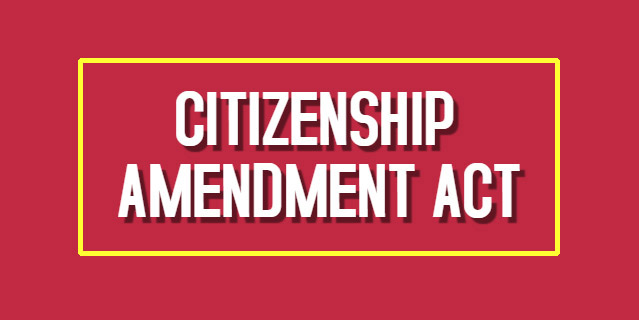Nithyakalyani Narayanan. V
The controversial Citizenship Amendment Act of 2019 (CAA) has essentially gotten into effect from March 11, 2024, when the Central government notified the Citizenship (Amendment) Rules, 2024.
On December 12, 2019, the President of India gave his approval to the CAA, which had caused widespread rioting in Delhi in February 2020. The notification was subsequently published in the gazette. But for the last four years, the law was in limbo because the CAA Rules had not yet been notified.
Hindus, Jains, Christians, Sikhs, Buddhists, and Parsis who came to India on or before December 31, 2014, from Bangladesh, Pakistan, and Afghanistan are intended to be granted citizenship under the CAA and Rules.
Section 2 of the Citizenship Act of 1955, which defines “illegal migrants”, is amended by the CAA, to include a new clause. Accordingly, individuals who are members of the Afghan, Bangladeshi, or Pakistani Hindu, Sikh, Buddhist, Jain, Parsi, or Christian communities and who have received an exemption from the Central government under the Passport (Entry into India) Act, 1920, or the Foreigners Act, 1946, will not be classified as “illegal migrants”. As a result, under the 1955 Act, these individuals will be qualified to petition for citizenship.
But the statute expressly leaves out the Muslim community from the proviso, which led to nationwide demonstrations and a barrage of Supreme Court petitions.
The CAA, according to the petitioners opposing the law, discriminates against Muslims on the grounds of their faith. It has been argued that such religious segregation contradicts Article 14’s right to quality and without any justification for discrimination.
The Supreme Court did not stop the Act when it issued notice in a batch of more than 140 petitions in January 2020, amid widespread demonstrations against the legislation.
The Central government stated that the CAA had no bearing on any Indian citizen’s legal, democratic, or secular rights in its affidavit submitted to the Supreme Court.
According to the government, the current process for foreign nationals of any nation to become citizens of India is unaffected by the CAA and stays unchanged.
The Supreme Court is currently considering the petitions.

